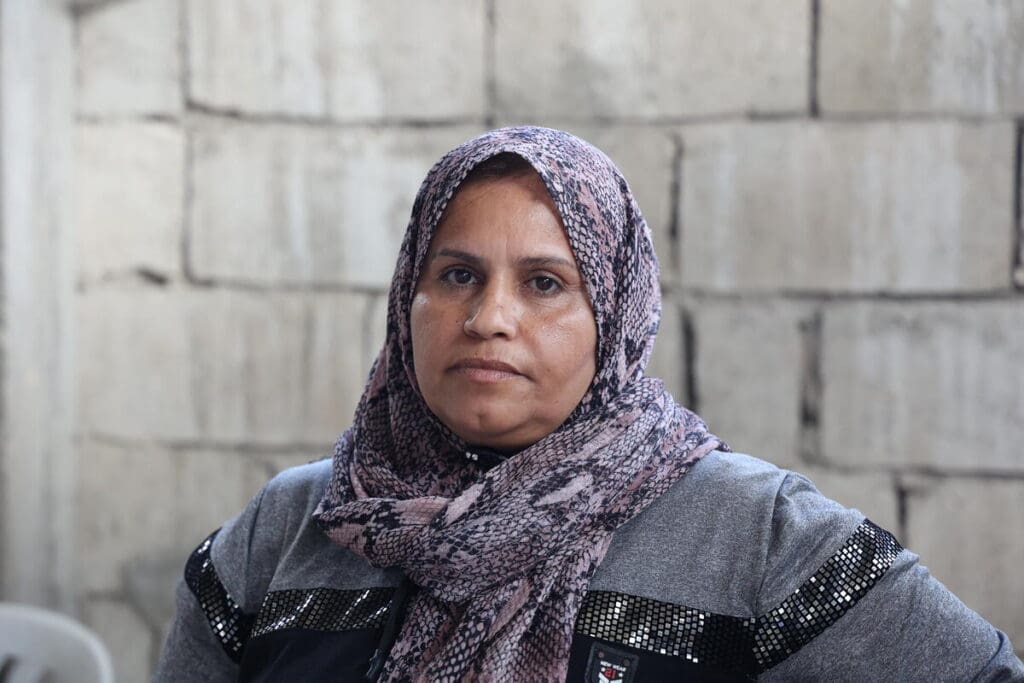WFP Chief Meets Families in Syria Struggling to Survive Deepening Hunger Crises

DAMASCUS/BEIRUT – United Nations World Food Programme (WFP) Executive Director David Beasley has warned that more Syrians are in the grip of hunger today than at any time during their country’s decade-long conflict, blaming a deadly combination of conflict, climate change, COVID and rising food and fuel costs.
During a three-day visit to the country, Beasley met with vulnerable families receiving U.N. World Food Programme food assistance in Aleppo. Mothers he spoke to in nutrition and food distribution centers complained about the skyrocketing food prices and described the hard choices they must make to survive.
A mother of four children, Hanan, whom Beasley met in Aleppo, described her daily struggles: “We are tired, worn out and now hungry too as the economic situation takes its toll,” she said. “I have not been able to get any fresh food, dairy or eggs for my children for the last four months. I have to make difficult decisions, like deciding which of my children should eat on the basis of who is most fragile and sick or who will slip into severe malnutrition if not fed today.”
Some 12.4 million people — almost 60 percent of the population — are now hungry and do not know where their next meal will come from. This is a 57 percent increase since 2019 and the highest number ever recorded in the history of Syria.
Syria’s agricultural sector struggles to produce enough to meet the population’s needs and food prices across the country reached record highs in September. Compared to just one year ago, the price of a basket of staple foods has more than doubled and is now beyond the reach of millions of families. Record lows both in levels of rainfall and in the level of the Euphrates are affecting 3.4 million people as governorates producing wheat and barley report significant losses.
“Conflict, climate change, COVID-19 and now the cost of living are pushing people beyond their limits,” Beasley said. “Mothers are telling me that with the upcoming winter they are caught between a rock and a hard place. They either feed their children, and let them freeze, or keep them warm and let them go hungry. They cannot afford both fuel and food.”
The impact of the financial crisis in neighboring Lebanon and the decline in the value of the Syrian pound compounded by the long-term impact of COVID-19 have all contributed to Syria’s economic downturn, pushing millions of people, already weakened by 10 years of conflict and displacement, into hunger, desperation and extreme poverty.
The U.N. World Food Programme is assisting over five million people with food assistance across Syria every month. But the agency faces severe funding constraints and was recently forced to reduce the size of the monthly food ration that families receive. The U.N. World Food Programme is only 31 percent funded and urgently requires close to $480 million for the next six months.
“History has shown us that if we do not help people before they become destitute, they will take drastic measures and we will see mass migration,” Beasley warned. “It is cheaper to help people where they are than to do so after they have fled their homes and became refugees in other places. We need the resources to be able to save lives and stabilize the situation.”
# # #
The United Nations World Food Programme is the 2020 Nobel Peace Prize Laureate. We are the world’s largest humanitarian organization, saving lives in emergencies and using food assistance to build a pathway to peace, stability and prosperity for people recovering from conflict, disasters and the impact of climate change.




